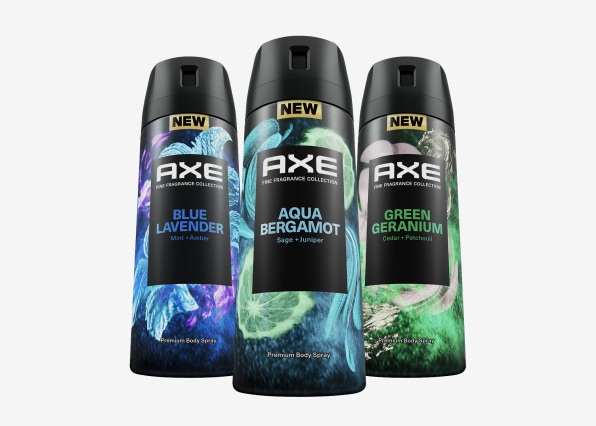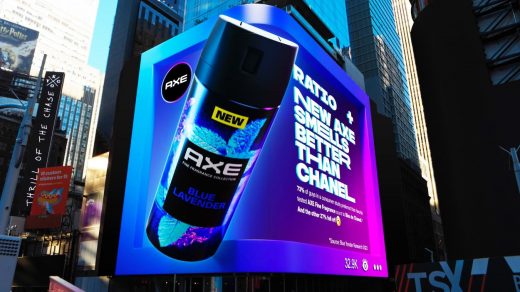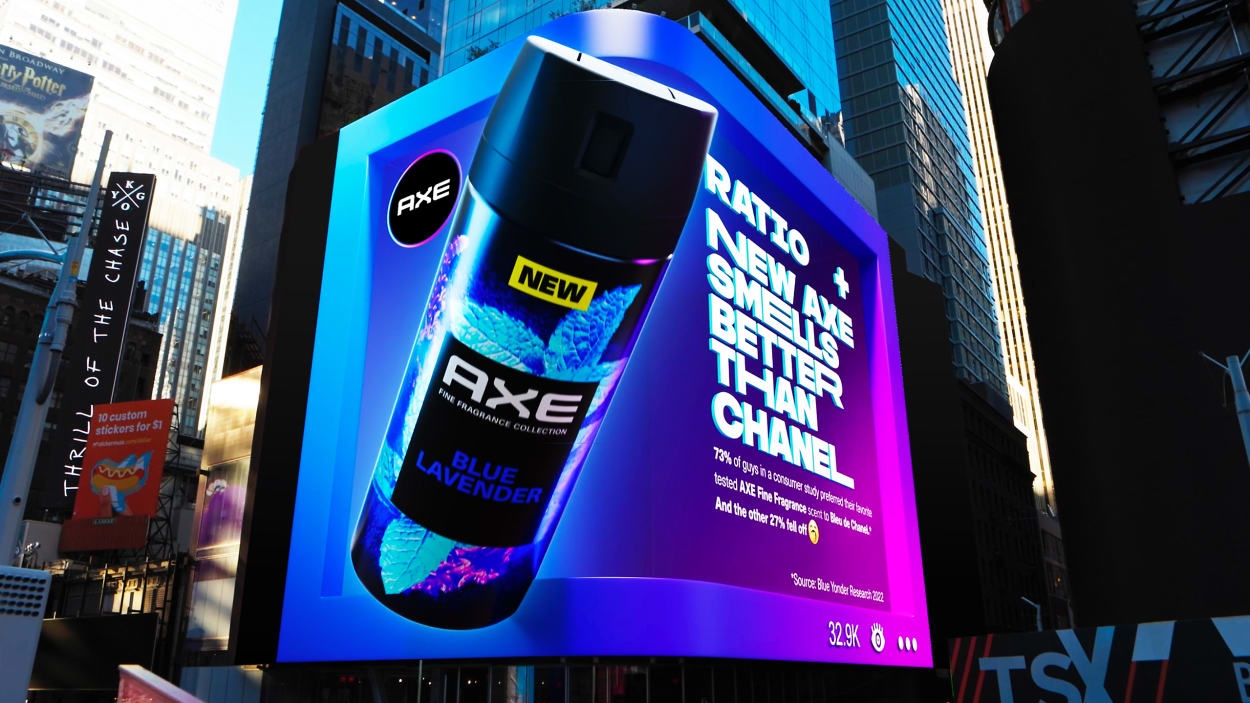How Axe tapped into internet culture for its latest product campaign
By Rafael Canton
In the social media world, a “ratio”—when comments on a post far outnumber the likes it gets—is something brands typically try to stay away from. But with the launch of its Fine Fragrance Collection, Axe is rolling out a campaign that looks to ratio luxury brands by highlighting preference consumers have shown for the new scents.
In a blind smell test conducted with software and consultancy company Blue Yonder, 200 participants whiffed a series of scents, including Axe’s Fine Fragrance collection and three scent options from luxury brands Bleu de Chanel, Versace Pour Homme, and Polo Blue Ralph Lauren.
Through the test, Axe found that 73% (or 146) of the 200 participants preferred Axe’s fragrance over all other competitors. Now, the brand wants to revel in the results that see its more affordable product beat out offerings from luxury brands.
The campaign, created with the Martin Agency, includes a 3D billboard takeover in Times Square, as well as promotion on social media and search engines. It will feature Axe ratioing the luxury brands it outperformed in the smell test.
“It’s done in a fun spirit, in a fun Axe way,” says Caroline Gregory, global brand director of Axe at parent company Unilever. “It’s just to show that those luxury fragrances are often only used for special occasions because of the price point that they are [sold at].”
Founded in 1983 in France, Axe—which goes by Lynx in various countries overseas—originally launched as a hybrid product with a fragrance in a deodorant. Gregory said the Unilever brand moved away from that but has now returned to focusing on scents with wide appeal.
“With this launch for the Fine Fragrance collection, it’s really the acceleration of bringing the brand back to its roots,” Gregory says. “It’s about reestablishing that fragrance superiority.”

Axe’s products are returning to basics alongside a new approach to marketing. In 2021, Axe relaunched its brand with its “New Axe Effect” campaign, which outlined its values as an inclusive brand. And it worked, helping Axe experience growth in the U.S. for the first time in over a decade.
Now, Gregory says Axe’s brand favorability is the highest it’s ever been, rising from 22% to 48% since 2021. It’s also being talked about more. “The brand is up in talkability, 307%,” she says. “We’re seeing that the brand is really now accelerating again with [Gen Z men].”
Over the past couple of years, Axe has tried different ways to reach that male Gen Z demographic. This includes growing its ad presence on TikTok and Snapchat, as well as an increased focus on gaming and e-sports, advertising more on Twitch and partnering with notable streamers like Kyle “Bugha” Giersdorf to create a custom virtual island in battle royale game Fortnite.
Last year, the brand named Lil Baby an ambassador, featuring the multiplatinum rapper star in an anime-inspired ad campaign and collaborating with him on limited-edition products.
For the Fine Fragrance collection launch, Axe is creating a filter on TikTok that will turn users into a can of Axe and let them ratio anything they think Axe smells better than. It has also enlisted content comedians Preacher Lawson and Adam Conover and TV personality Chanel West Coast to create video content to promote the scents.
The new campaign, relying as it does on internet culture, highlights the company’s marketing strategy, which close monitors social media trends to shape how it presents itself to its target audience—something the brand has been good at for more than a decade. “A lot of our work comes from what we see in conversations on social,” Gregory said. “We then feed that back up into our marketing campaigns.”
With Axe’s recent creative work, Gregory says the goal is to show that it doesn’t take itself too seriously as a brand, which helps its marketing move quickly and resonate among an audience with a supercharged media metabolism.
“The attention span is very, very short,” Gregory said. “If you look at the world of TikTok or the world of gaming, it’s very fast-paced. They’re able to digest things that those of us in older generations aren’t able to do quite so quickly.”
The campaign will live on social media for this week, but an ad for television is set to debut in the coming weeks.
(13)



